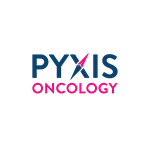Pyxis Oncology ("Pyxis" or the "Company") today announced that it has entered into a worldwide license agreement with Pfizer Inc. (NYSE:PFE) for the development and commercialization of two antibody-drug conjugate (ADC) candidates and a license to Pfizer's ADC technology platform, enabling expansion of its ADC portfolio and further strengthening its developmental capabilities.
"This collaboration represents successful execution of our overarching corporate strategy to marry in-house organic growth with strategic in-licensing and partnerships to develop our multi-asset multi-platform portfolio," said Lara Sullivan, M.D., Chief Executive Officer of Pyxis. "We look forward to advancing these candidates to the clinic and ultimately achieving the company's vision to bring new treatment options to patients with difficult-to-treat cancer."
Under the terms of the licensing agreement, Pfizer will provide Pyxis with a worldwide, royalty-bearing license to develop and commercialize two innovative ADC candidates, PYX-201 and PYX-203. Pfizer will receive an upfront payment and equity in Pyxis and is eligible to receive development and sales-based milestone payments and tiered royalties on potential sales. As part of this agreement, Pyxis also was granted a license to Pfizer's ADC platform, including various payload classes, linker technology and site-specific conjugation techniques for the future development of additional ADCs. Pfizer will also continue to support the development and advancement of this portfolio through an equity investment made by Pfizer Ventures.
Ronald Herbst, Ph.D., Chief Scientific Officer of Pyxis, said, "The early generations of ADCs demonstrated significant potency, but considerable room remains for innovation to generate highly effective ADCs with an improved safety profile. PYX-201 and PYX-203 represent the next generation of ADCs that use innovative conjugation technologies. By combining highly specific antibodies targeting clinically validated tumor markers with established linkers and both novel and proven payloads, we are excited to translate the extensive validating preclinical studies conducted by Pfizer to an improved clinical profile for patients."
Jeff Settleman, Ph.D., Pfizer's Chief Scientific Officer of oncology research & development, added, "The Pyxis team of industry veterans led by Dr. Sullivan and Dr. Herbst has the experience needed to maximize the clinical potential of these therapeutics. This agreement underscores our commitment to ensure these molecules reach patients as quickly as possible. We look forward to the team's advancement of these therapeutics based on the promise of ADC technology to significantly impact the treatment landscape."
PYX-201 is a first-in-class non-internalizing ADC that targets a tumor-restricted antigen that is overexpressed in several solid tumor types to selectively kill tumor cells while enhancing a robust anti-cancer immune response. PYX-203 is an ADC that targets an antigen expressed in certain hematologic malignancies. PYX-203 utilizes a highly potent DNA-damaging agent designed to reduce the potential development of drug resistance and disease relapse.
About Pyxis Oncology
Founded by Longwood Fund, Pyxis Oncology is building a differentiated portfolio of biologics, including antibody-drug conjugates (ADCs) and immunotherapies, to improve the lives of patients with difficult-to-treat cancers. Pyxis is employing site-specific conjugation technology to develop highly stable ADCs with superior therapeutic indexes. Pyxis is also advancing a diverse portfolio of immunotherapies that target broad immune regulators as well as novel immune checkpoints identified through its immuno-oncology and cold tumor platforms. For additional information, visit www.pyxisoncology.com .
Media Contact
Jason Braco, Ph.D.
LifeSci Communications
+1-646-751-4361
jbraco@lifescicomms.com




